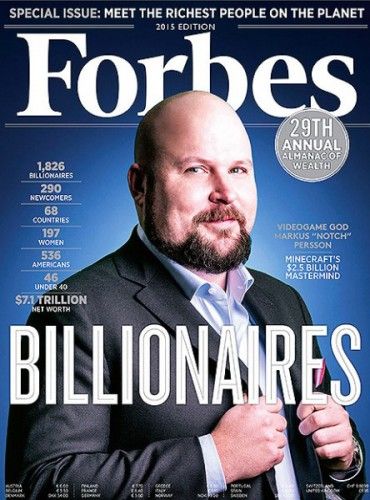
Have you ever wondered where charitable organizations find the money they need to operate? While it may be logical to look at local businesses and big box stores as the source for these funds, you would be wrong in assuming that these entities are the main source of funding for not-for-profit organizations. In fact, according to Laura MacDonald, CFRE, president of the Benefactor Group, on episode 11 of Unsuitable on Rea Radio, about 80 percent of philanthropic funding was secured from individual donors, while another 8 percent came in the form of bequests and 7 percent of funds were given by closely held family foundations or donor advised funds.
Why do individuals choose to make such a huge commitment of funds to charity? MacDonald says that people choose to give because they like the way it makes them feel and they like the way others will think of them if and when they give.
“At the end of the day, no matter how well you have strategized your giving (from a tax perspective), it’s still going to cost you money,” explained Laura. “I don’t know of anybody who is in a 100 percent tax bracket.”
That being said, there are still some tax planning strategies donors don’t want to miss – especially if you are looking for ways to realize your dollar’s maximum value.
Mark and Priscilla Are Using Their Heads & Hearts – And You Can Too

On Dec. 1, 2015, Mark Zuckerberg, founder, chairman and CEO of Facebook, announced that he and his wife, Priscilla Chan, would give away 99 percent of their Facebook stock over the course of their lives – a gift that is presently worth around $45 billion.
According to a letter to the couple’s newborn daughter, Max, the gift will be used to “join people across the world to advance human potential and promote equality for all children in the next generation. … Initial areas of focus will be personalized learning, curing disease, connecting people and building strong communities.”
“Starting our work now in investing in the future is an easy decision for us,” said Priscilla Chan in a video on the Chan Zuckerberg Initiative’s Facebook page.
While the creation of the Chan Zuckerberg Initiative and the couple’s commitment to invest around $45 billion into projects aimed at making the world a better place for the next generation is fueled by the heart, they are also using their heads. This Forbes article does a great job of explaining the strategy likely going on behind the scenes.
“One can assume that [Zuckerberg] will make these enormous gifts in shares, not in cash, just like famously savvy Warren Buffett of Berkshire Hathaway. … With stock, the donor gets a charitable contribution deduction based on the fair market value of the shares. Value and basis are different things, which can mean enormous tax advantages.”
Fortunately, these strategies aren’t just for the billionaires of the world. Individuals and small business owners have these financial tools available to them as well. A financial advisor is the best person to review your specific situation and help you determine your optimal course of action.
New Year, New Gifting Strategy
The last few months of the year are typically referred to as “the season of giving.” Not only are people looking to make a last-minute effort to reduce their tax bill, not-for-profit organizations traditionally count on people to be more generous during the holidays. But you certainly don’t have to limit your gifting strategy to the end of the year. In fact, your favorite charity needs help 365 days a year. And taking advantage of this fact can help you make smaller gifts throughout the year, which will add up to a larger deduction when you go to file your taxes. Here are a few important points all donors should keep in mind.
- Donations made to qualified charitable organizations are deductible. The actual cost of the gift is reduced by your tax savings. For example, if you are in the 35 percent tax bracket, the actual cost of a $1,000 donation is $650.
- A contribution is deductible in the year in which it is paid. If you make a contribution on your credit card on Dec. 31, it is deductible in the year it is charged to your credit card regardless of when you make the payment to the credit card. Additionally, if the check is in the mail to the charity of your choice by the end of the year, that constitutes a payment.
- As we are cleaning out the old to make room for the new, consider donating your clothes, equipment or furniture to a qualified charitable organization such as the Salvation Army. You can take a charitable deduction for donations of items that are in “good condition or better.” Just be sure to get a receipt from the organization in order to take the deduction.
- Appreciated stock is another great item to donate to a qualified charity. If you have stock you purchased for $1 a share and it is now worth $100 a share, consider gifting the stock to your favorite qualified charity. This approach will earn you an income tax deduction of $100 and will require you to pay no capital gains tax on the donated stock. This strategy will likely be used by the Chan Zuckerberg Initiative.
If you are planning to deduct your donation on your taxes, be sure to remember these four important documentation rules:
- You must itemize expenses on Schedule A to deduct charitable donations. If you claim the standard deduction, your charitable gifts are not deductible.
- You must have written confirmation from the charity for a separate contribution of $250 or more.
- A canceled check, credit card statement or written acknowledgement from the charity is required to substantiate deductions for all monetary donations. If you drop $100 in the collection bucket without a receipt, you cannot take the deduction.
- Any non-cash gift of $5,000 or more has to have a qualified appraisal.
If you are thinking about making a large donation to a nonprofit organization, email Rea & Associates and request to speak with a financial expert and tax advisor and discover how to make your donated dollars go further.
By Inez Bowie, CPA, CSEP (Marietta Office)
